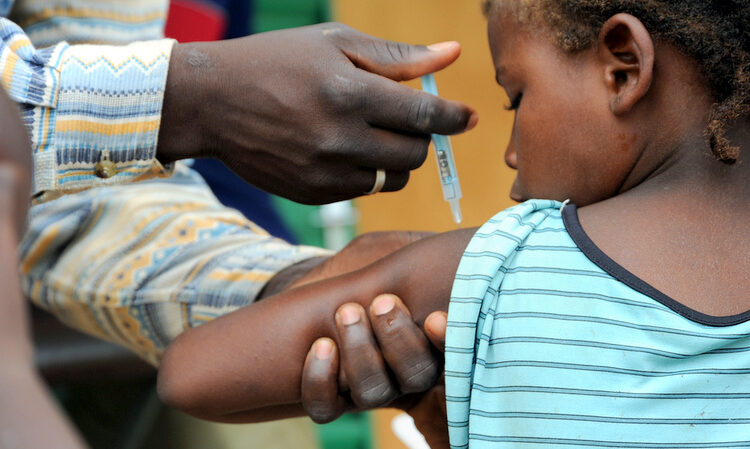The Kwara State government said it will commence an integrated polio and measles-rubella vaccination campaign from October 11 to 20, targeting children and young people aged nine months to 14 years across the 16 local government areas.
To guarantee smooth operations, the government is engaging security agencies to safeguard health workers, especially in areas facing insecurity.
Speaking during a Media Dialogue on integrated measles-rubella vaccine introduction and polio campaign, the executive secretary of the State Primary Health Care Development Agency( KWPHCDA), Prof. Nusirat Elelu said that no community would be left out in the exercise.
” We are committed to mobilising military personnel, health officers, and logistics to areas witnessing insecurity. We need to protect the health of the people, too. It would be a double tragedy for them to face security challenges and also be denied immunisation,” she said.
Elelu explained that discussions had already begun with the National Primary Health Care Development Agency(NPHCDA) and the military to devise strategies for delivering vaccines in high-risk areas.
She noted that the campaign aligns with global targets for measles-rubella elimination by 2030, while also emphasising the critical role of the media in public sensitisation.
Represented by the director of Primary Healthcare System, Dr Michael Oguntoye, Elelu described the media as a vital tool to educate citizens, counter misinformation, and reduce vaccine hesitancy.
Ahead of the official flag-off, she said the agency had engaged traditional and religious leaders to mobilise their communities.
In his keynote address, UNICEF’s Social Behaviour specialist, Mr Ibrahim Mohammed, urged Nigeria to intensify efforts to end polio transmission by 2025 while embracing the Measles-Rubella (MR) vaccine.
He emphasised Nigeria’s achievement of being declared free of wild poliovirus in 2020 but cautioned that challenges remain, as the country still has one of the highest numbers of “zero-dose” children—those who have never received any vaccine.
He described the introduction of the MR vaccine, available free of charge to children aged 9 months to 14 years, as a historic step in protecting future generations from preventable diseases.
The state immunisation officer, Hajia Sarat Yunus, explained that measles remains a highly infectious viral disease that can cause severe complications such as pneumonia, encephalitis, and death, especially among children and immunocompromised individuals.
UNICEF’s Dr Usman Danlami and WHO’s Emmanuel Eyitayo both underscored the role of the media in ensuring public awareness, urging journalists to counter vaccine myths and misinformation with facts.





